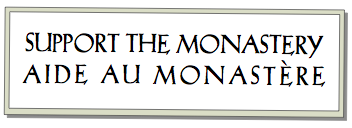At this time in Eastertide when it is customary to raise the question
of vocations to the priesthood and religious life,
we invite young men to take the time to read the Prologue of the Rule of Saint Benedict
(text below).
We invite them to read it prayerfully and meditatively,
and to consider before God its unequivocal challenge.
If this challenge touches you in some way
—or even unsettles you--
are you prepared to do something about it?
Are you willing to “hasten to do now what may profit us for eternity,”
to “run whilst you have the light of life,”
to consider entering “the school of the Lord’s service”
and thereby to experience that enlargement of your heart hearts
and “run with unspeakable sweetness of love in the way of God’s commandments”?
The monastery welcomes young men (18+)
who wish to spend a period of time living our traditional Benedictine life
of prayer, work and study alongside us
(with the Office and Mass in Latin in the traditional rites)
so as to further the discernment of their vocation.
Places are available from mid-May, throughout the summer and beyond
(email us at contact@monasterebrignoles.org).
To learn more about our life, please read:
Am I called to be a monk? - Monastère Saint-Benoît (monasterebrignoles.org)
If this life might be the life to which God is calling you,
don’t just think about it or talk about it:
do something about it while you still can!
SAINT BENEDICT - PROLOGUE TO THE RULE
HEARKEN, MY SON, to the precepts of thy master and incline the ear of thy heart; freely receive and faithfully fulfil the instructions of thy loving father, that by the labour of obedience thou mayest return to him from whom thou hast strayed by the sloth of disobedience. To thee are my words now addressed, whosoever thou mayest be that renouncing thine own will to fight for the true King, Christ, dost take up the strong and shining weapons of obedience.
And first of all, whatever good work thou undertakest, ask him with most instant prayer to perfect it, so that he who has deigned to count us among his sons may never be provoked by our evil conduct. For we must always so serve him with the gifts which he has given us, that he may never as an angry Father disinherit his children, not yet as our dread Lord be driven by our sins to cast into everlasting punishment the wicked servants who would not follow him to glory.
Up with us then at last, for the Scripture arouseth us, saying: Now is the hour for us to rise from sleep. Let us open our eyes to the divine light, and let us hear with attentive ears the warning that the divine voice crieth daily to us: Today if ye will hear his voice, harden not your hearts. And again: He that hath ears to hear, let him hear what the Spirit saith to the churches. And what doth he say? Come, ye children, hearken unto me: I will teach you the fear of the Lord. Run while ye have the light of life, lest the darkness of death overtake you.
And the Lord, seeking his workman among the multitudes to whom he thus crieth, saith again: What man is he that desireth life and would fain see good days? And if hearing him thou answer, ‘I am he,’ God saith to thee: If thou wilt have true and everlasting life, keep thy tongue from evil and thy lips that they speak no guile. Turn away from evil and do good; seek after peace and pursue it. And when you have done these things, my eyes will be upon you and my ears open unto your prayers. And before you call upon me, I shall say to you, ‘Lo, here I am.’ What can be sweeter to us, dearest brethren, than this voice of our Lord inviting us? Behold in his loving mercy the Lord showeth us the way of life.
Let us, therefore, gird our loins with faith and the performance of good works, and following the guidance of the Gospel walk in his paths, so that we may merit to see him who has called us unto his kingdom. And, if we wish to dwell in the tabernacle of his kingdom, except we run thither with good deeds we shall not arrive. But let us ask the Lord with the Prophet: Lord, who shall dwell in thy tabernacle, or who shall rest upon thy holy hill? Then, brethren, let us hear the Lord answering and show us the way to that tabernacle and saying: He that walketh without blemish and doeth that which is right; he that speaketh truth in his heart, who hath used no deceit in his tongue, nor done evil to his neighbour, nor hath slandered his neighbour. He that taketh the evil spirit that tempteth him, and casteth him and his temptation from the sight of his heart, and bringeth him to naught; who graspeth his evil suggestions as they arise and dasheth them to pieces on the rock that is Christ. Such men as these, fearing the Lord, are not puffed up on account of their good works, but judging that they can do no good of themselves and that all cometh from God, they magnify the Lord’s work in them, using the word of the prophet: Not unto us, O Lord, not unto us, but unto thy name give the glory. So the Apostle Paul imputed nothing of his preaching to himself, but said: By the grace of God I am what I am. And again he saith: He that glorieth, let him glory in the Lord.
Wherefore the Lord also saith in the Gospel: He that heareth these my words and doth them, shall be likened to a wise man that built his house upon a rock. The floods came and the winds blew, and they beat upon that house, and it fell not, for it was founded upon a rock. Having given us these instructions, the Lord daily expects us to make our life correspond with his holy admonitions. And the days of our life are lengthened and a respite allowed us for this very reason, that we may amend our evil ways. For the Apostle saith: Knowest thou not that the patience of God leadeth thee to repentance? For the merciful Lord saith: I will not the death of a sinner, but that he should be converted and live.
So, brethren, we have asked the Lord about the dwellers in his tabernacle and have heard what is the duty of him who would dwell therein; it remains for us to fulfil this duty. Therefore our hearts and bodies must be made ready to fight under the holy obedience of his commands; and let us ask God that he be pleased, where our nature is powerless, to give us the help of his grace. And if we would escape the pains of hell and reach eternal life, then must we, while there is still time, while we are in this body and can fulfil all these things by the light of this life, hasten to do now what may profit us for eternity.
Therefore must we establish a school of the Lord’s service; in founding which we hope to ordain nothing that is harsh or burdensome. But if, for good reason, for the amendment of evil habit or the preservation of charity, there be some strictness of discipline, do not be at once dismayed and run away from the way of salvation, of which the entrance must needs be narrow. But, as we progress in our monastic life and in faith, our hearts shall be enlarged, and we shall run with unspeakable sweetness of love in the way of God’s commandments; so that, never abandoning his rule but persevering in his teaching in the monastery until death, we shall share by patience in the sufferings of Christ, that we may deserve to be partakers also of his kingdom. Amen.
And first of all, whatever good work thou undertakest, ask him with most instant prayer to perfect it, so that he who has deigned to count us among his sons may never be provoked by our evil conduct. For we must always so serve him with the gifts which he has given us, that he may never as an angry Father disinherit his children, not yet as our dread Lord be driven by our sins to cast into everlasting punishment the wicked servants who would not follow him to glory.
Up with us then at last, for the Scripture arouseth us, saying: Now is the hour for us to rise from sleep. Let us open our eyes to the divine light, and let us hear with attentive ears the warning that the divine voice crieth daily to us: Today if ye will hear his voice, harden not your hearts. And again: He that hath ears to hear, let him hear what the Spirit saith to the churches. And what doth he say? Come, ye children, hearken unto me: I will teach you the fear of the Lord. Run while ye have the light of life, lest the darkness of death overtake you.
And the Lord, seeking his workman among the multitudes to whom he thus crieth, saith again: What man is he that desireth life and would fain see good days? And if hearing him thou answer, ‘I am he,’ God saith to thee: If thou wilt have true and everlasting life, keep thy tongue from evil and thy lips that they speak no guile. Turn away from evil and do good; seek after peace and pursue it. And when you have done these things, my eyes will be upon you and my ears open unto your prayers. And before you call upon me, I shall say to you, ‘Lo, here I am.’ What can be sweeter to us, dearest brethren, than this voice of our Lord inviting us? Behold in his loving mercy the Lord showeth us the way of life.
Let us, therefore, gird our loins with faith and the performance of good works, and following the guidance of the Gospel walk in his paths, so that we may merit to see him who has called us unto his kingdom. And, if we wish to dwell in the tabernacle of his kingdom, except we run thither with good deeds we shall not arrive. But let us ask the Lord with the Prophet: Lord, who shall dwell in thy tabernacle, or who shall rest upon thy holy hill? Then, brethren, let us hear the Lord answering and show us the way to that tabernacle and saying: He that walketh without blemish and doeth that which is right; he that speaketh truth in his heart, who hath used no deceit in his tongue, nor done evil to his neighbour, nor hath slandered his neighbour. He that taketh the evil spirit that tempteth him, and casteth him and his temptation from the sight of his heart, and bringeth him to naught; who graspeth his evil suggestions as they arise and dasheth them to pieces on the rock that is Christ. Such men as these, fearing the Lord, are not puffed up on account of their good works, but judging that they can do no good of themselves and that all cometh from God, they magnify the Lord’s work in them, using the word of the prophet: Not unto us, O Lord, not unto us, but unto thy name give the glory. So the Apostle Paul imputed nothing of his preaching to himself, but said: By the grace of God I am what I am. And again he saith: He that glorieth, let him glory in the Lord.
Wherefore the Lord also saith in the Gospel: He that heareth these my words and doth them, shall be likened to a wise man that built his house upon a rock. The floods came and the winds blew, and they beat upon that house, and it fell not, for it was founded upon a rock. Having given us these instructions, the Lord daily expects us to make our life correspond with his holy admonitions. And the days of our life are lengthened and a respite allowed us for this very reason, that we may amend our evil ways. For the Apostle saith: Knowest thou not that the patience of God leadeth thee to repentance? For the merciful Lord saith: I will not the death of a sinner, but that he should be converted and live.
So, brethren, we have asked the Lord about the dwellers in his tabernacle and have heard what is the duty of him who would dwell therein; it remains for us to fulfil this duty. Therefore our hearts and bodies must be made ready to fight under the holy obedience of his commands; and let us ask God that he be pleased, where our nature is powerless, to give us the help of his grace. And if we would escape the pains of hell and reach eternal life, then must we, while there is still time, while we are in this body and can fulfil all these things by the light of this life, hasten to do now what may profit us for eternity.
Therefore must we establish a school of the Lord’s service; in founding which we hope to ordain nothing that is harsh or burdensome. But if, for good reason, for the amendment of evil habit or the preservation of charity, there be some strictness of discipline, do not be at once dismayed and run away from the way of salvation, of which the entrance must needs be narrow. But, as we progress in our monastic life and in faith, our hearts shall be enlarged, and we shall run with unspeakable sweetness of love in the way of God’s commandments; so that, never abandoning his rule but persevering in his teaching in the monastery until death, we shall share by patience in the sufferings of Christ, that we may deserve to be partakers also of his kingdom. Amen.

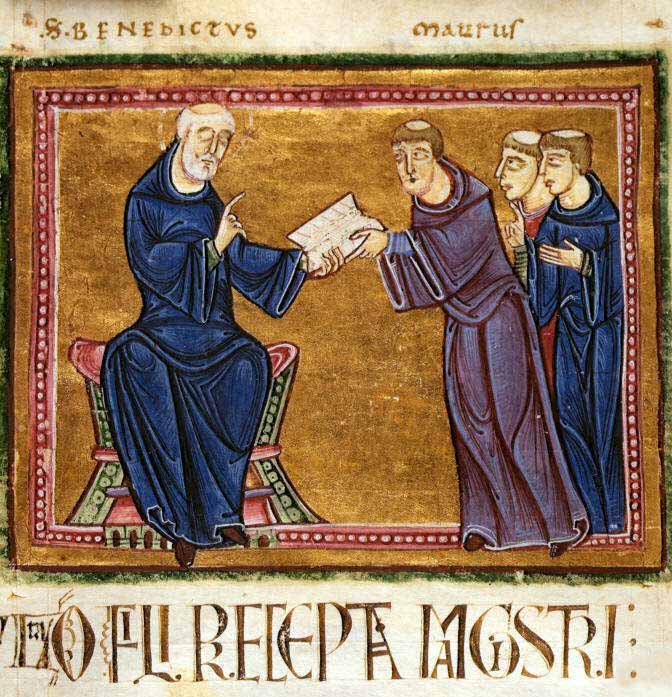
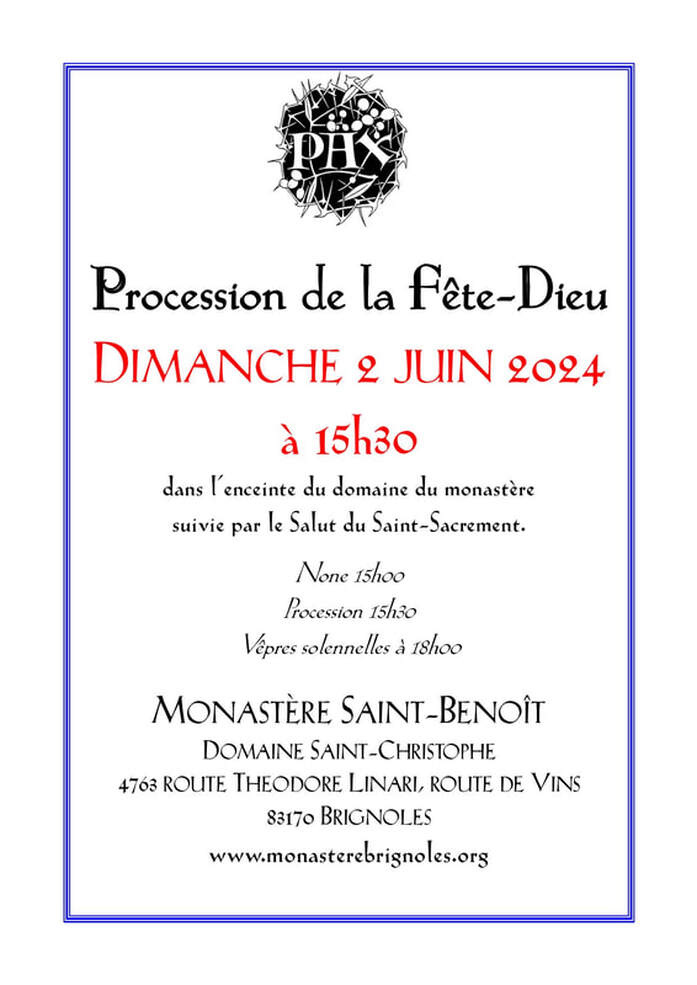
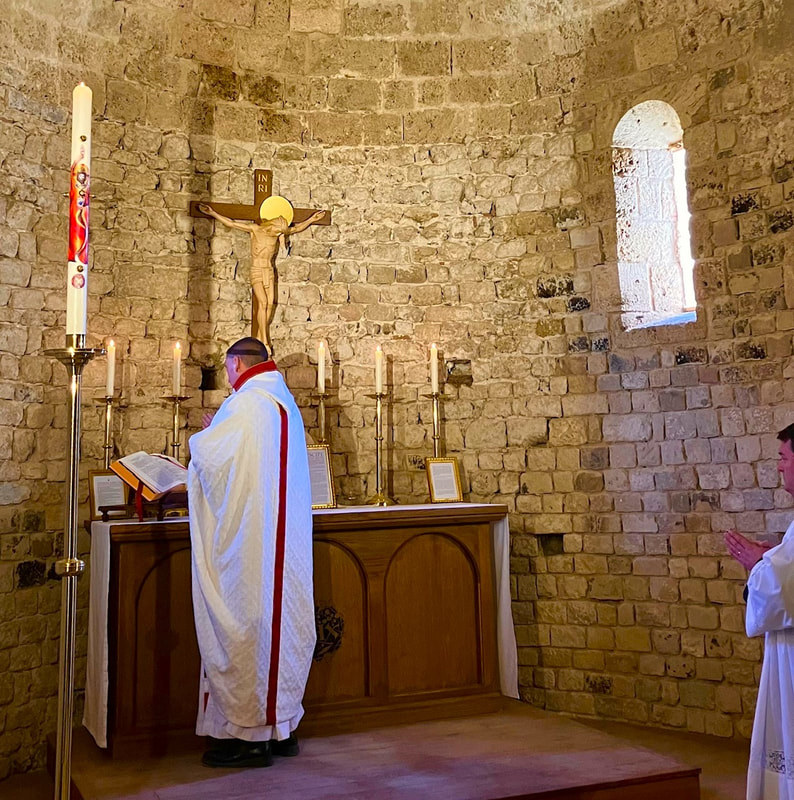
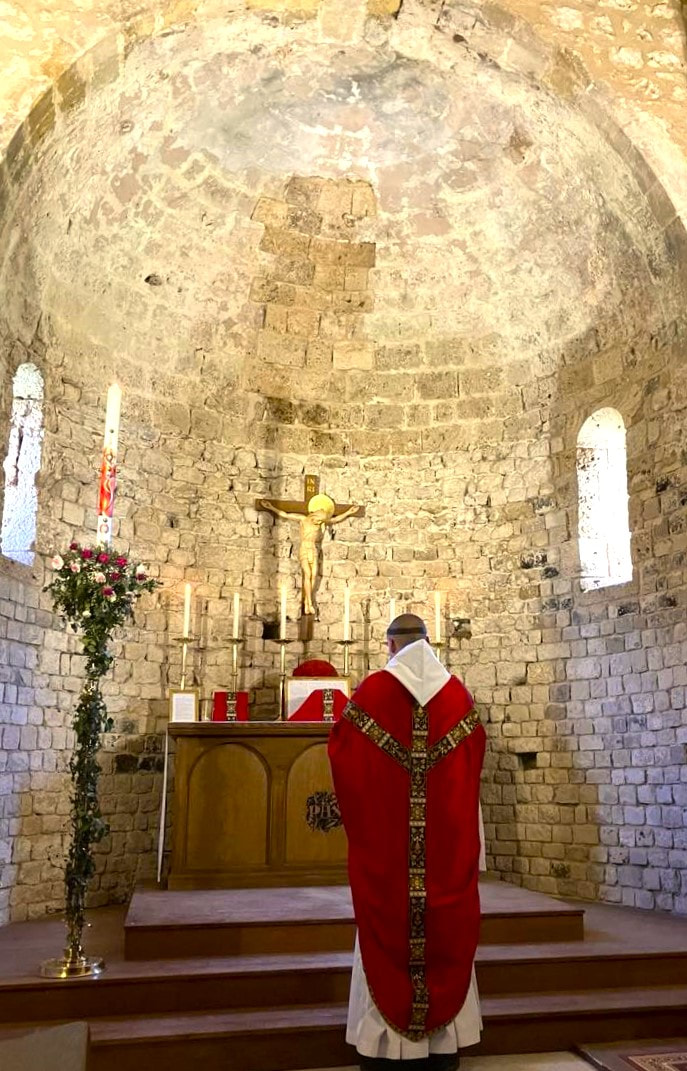
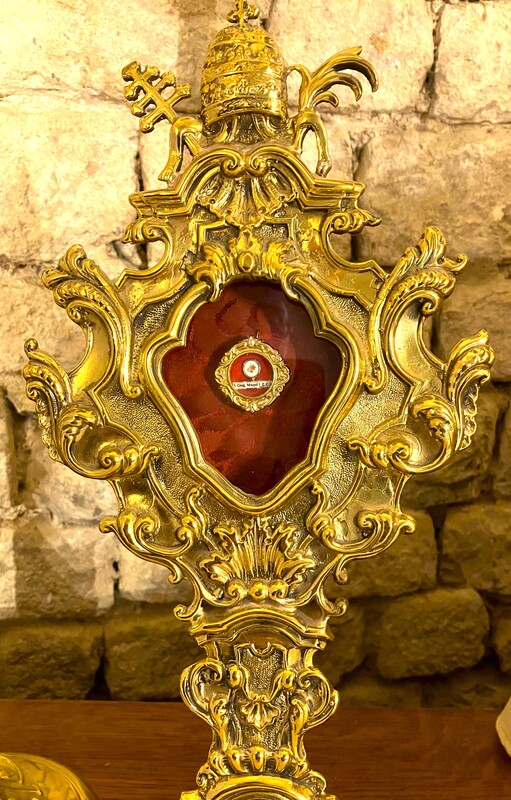
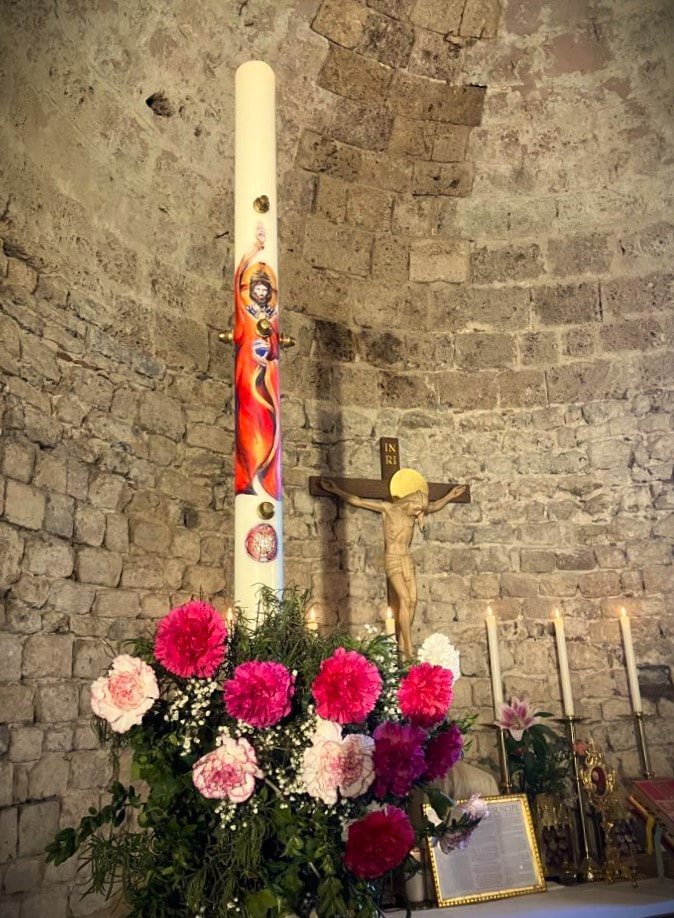
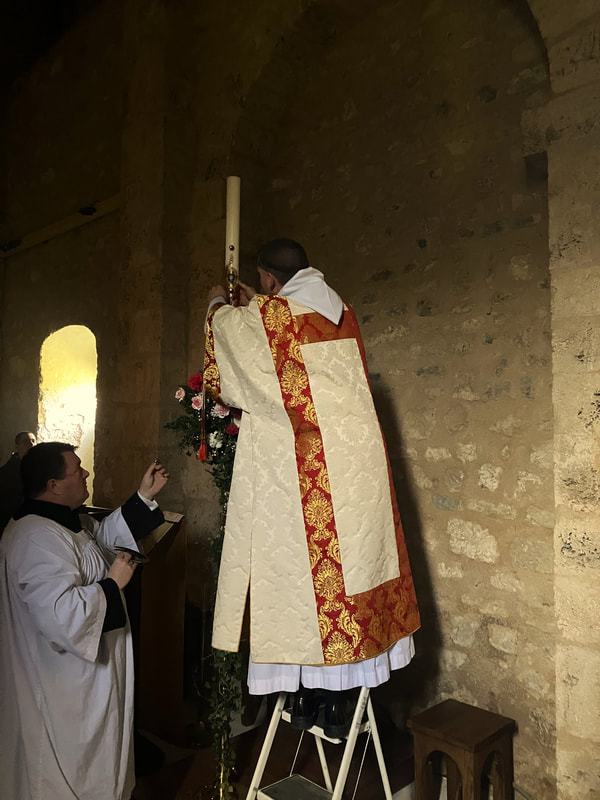
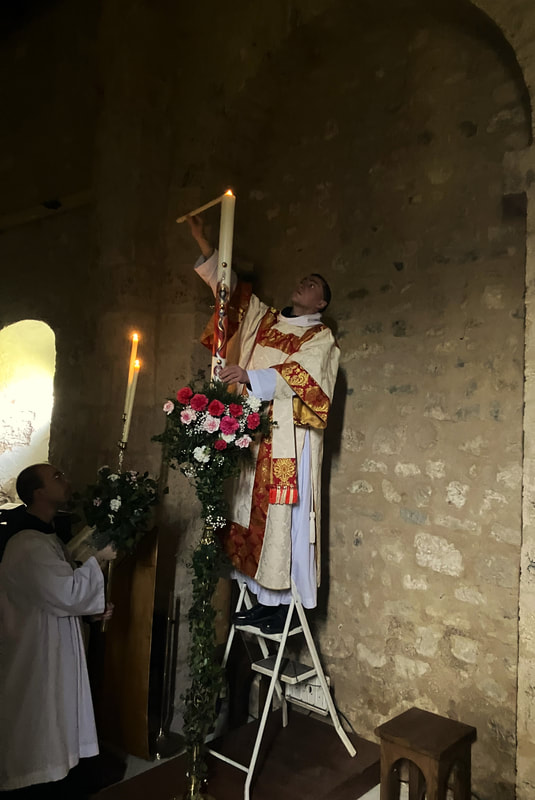

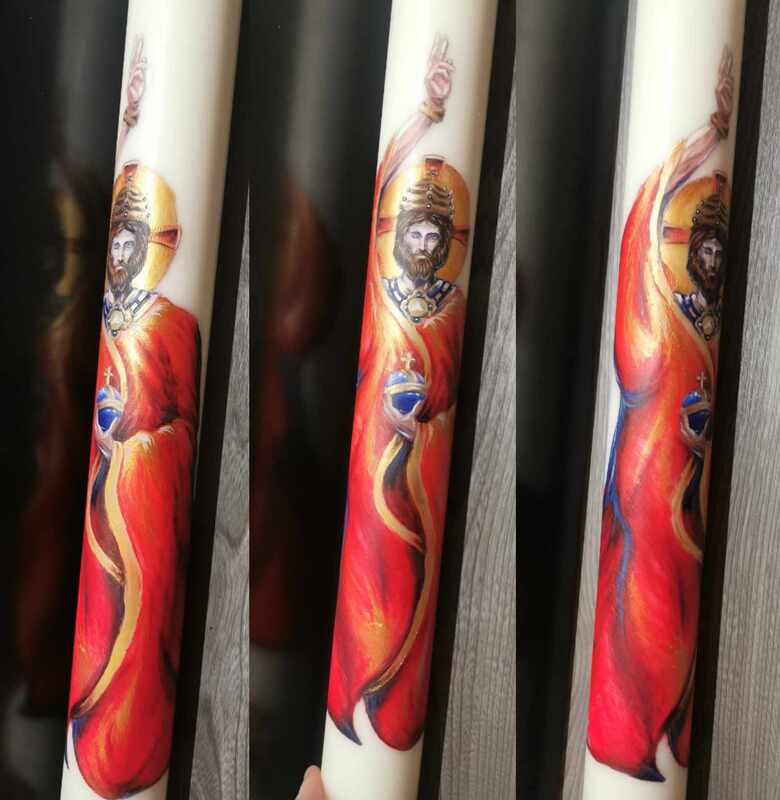
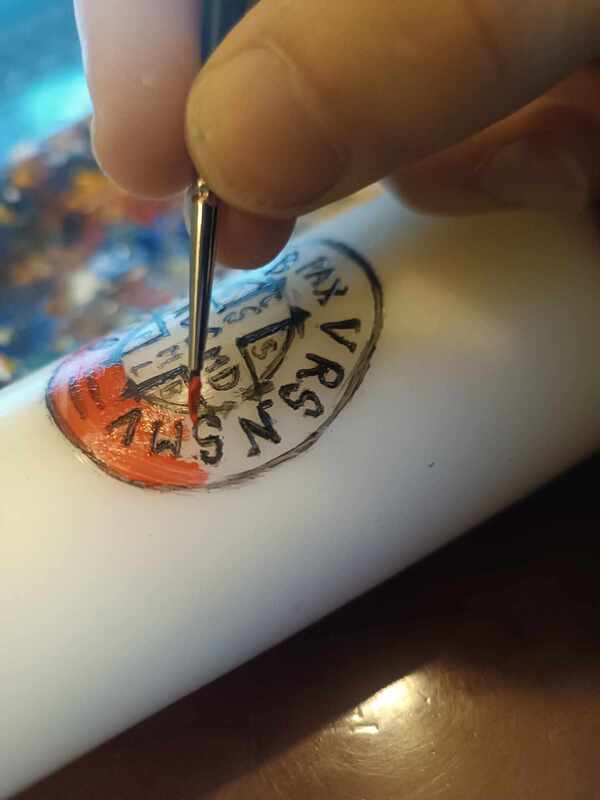
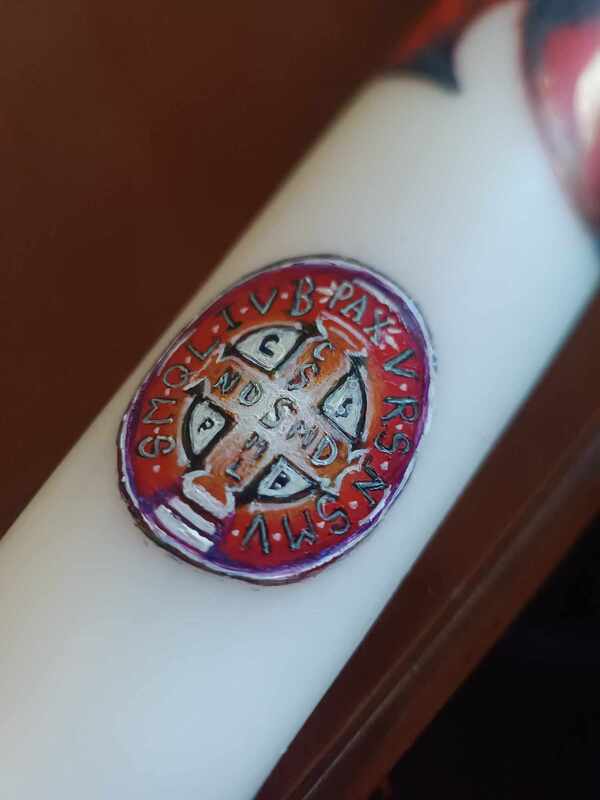
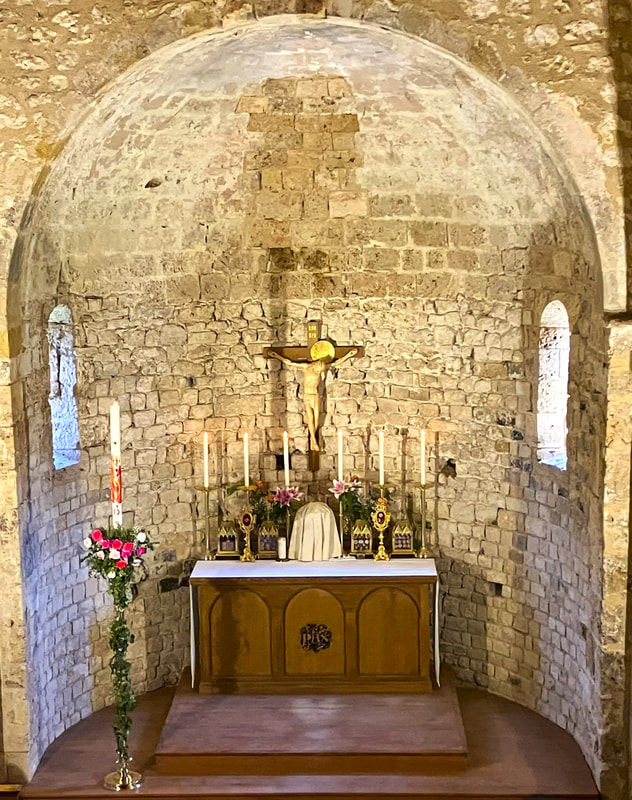
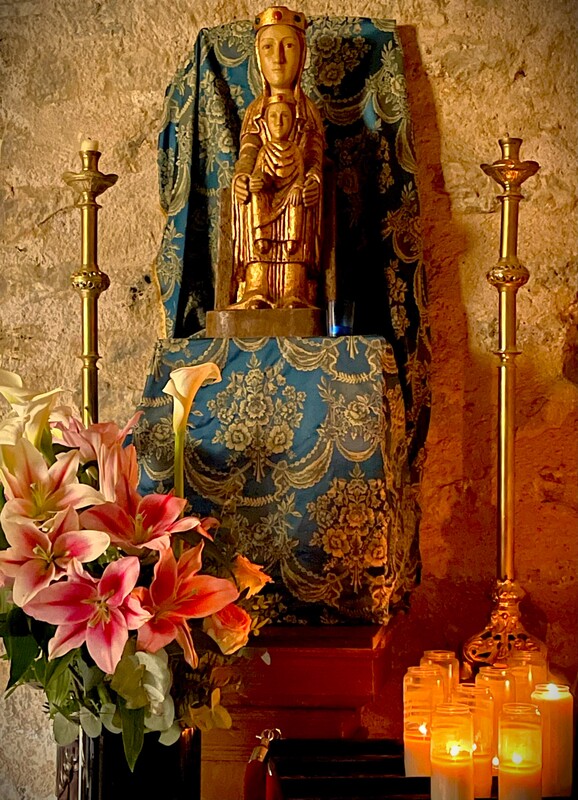
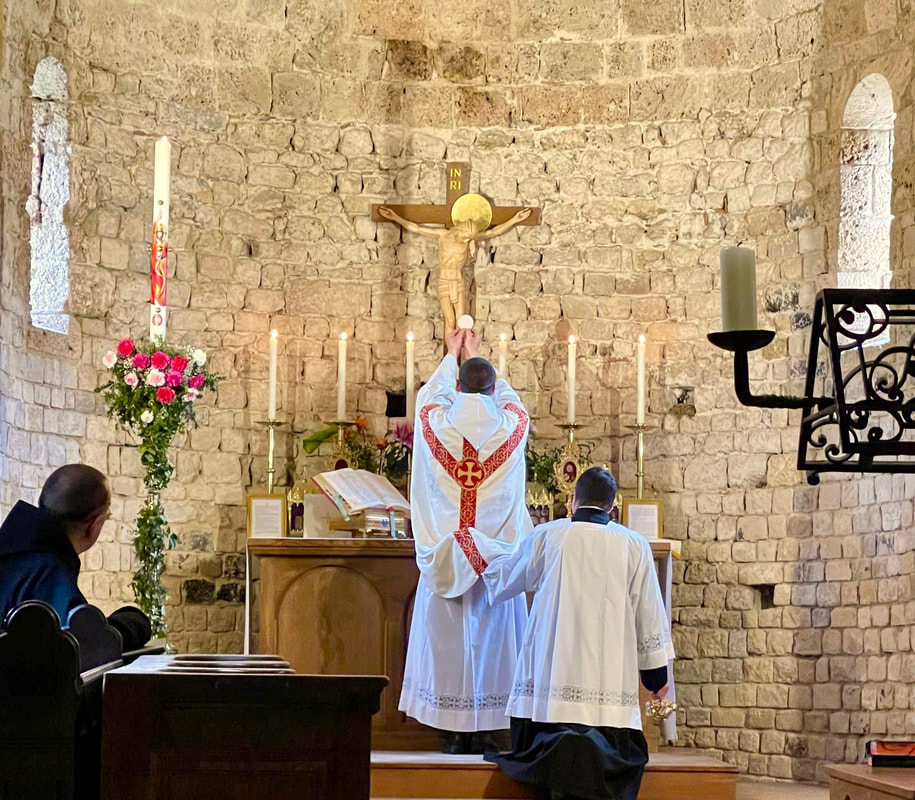
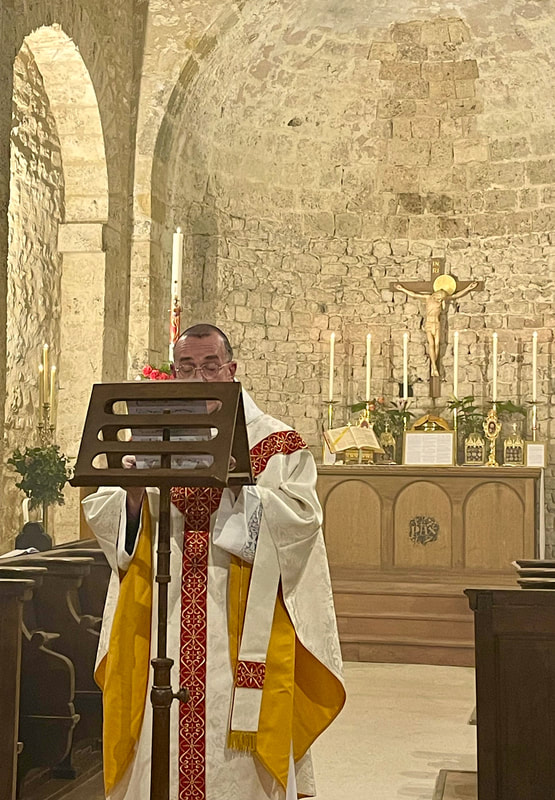
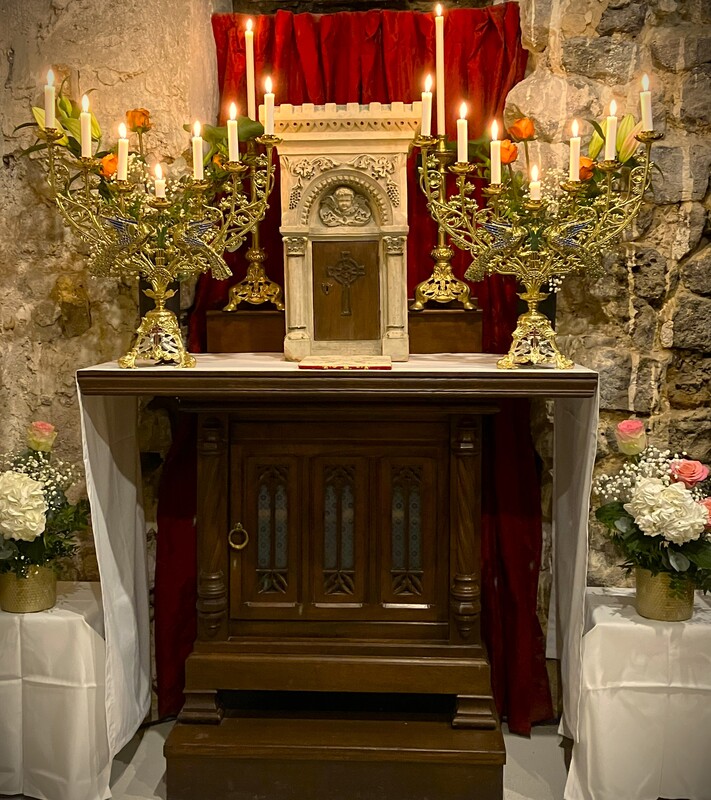
 RSS Feed
RSS Feed
